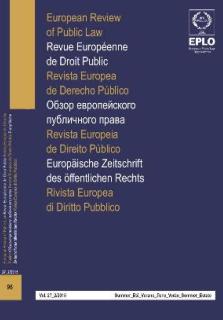
Jurisprudence
Constitutional / Constitutionnelle
2013
FRANCE
BERTRAND MATHIEU / MICHEL VERPEAUX
Professeurs à l'Ecole de droit de la Sorbonne-Université Paris 1 Panthéon-Sorbonne.
Avec la collaboration de Marie-Odile Peyroux-Sissoko, ATER à l'Université Paris 1 Panthéon-Sorbonne.
This chronicle analyses the decisions of the Constitutional Council that were rendered in 2013. This year was marked by an increase in a priori litigation and a slight decrease in a posteriori litigation. Adjudicating on the institutional law as material, the Constitutional Council confirmed both its role as interpreter of the Constitution and its place within the institutions. Thus, while specifying the criteria necessary for the recognition of a fundamental principle recognised by the law of the Republic, it considered that the Constitution allows the legislator some room for manoeuvre for reforms called "societal". The Council has also fully participated in the "dialogue between the judges" by referring to the Court of Justice of the European Union a question for a preliminary ruling, for the first time in a posteriori litigation.
Cette chronique analyse les décisions du Conseil constitutionnel rendues au cours de l'année 2013. L'année a été marquée par un accroissement du contentieux a priori et une légère diminution du contentieux a posteriori. Se prononçant sur le droit institutionnel comme matériel, le Conseil constitutionnel a confirmé son rôle d'interprète de la Constitution et sa place au sein des institutions. Ainsi, tout en précisant les critères nécessaires à la reconnaissance d'un principe fondamental reconnu par les lois de la République, il a estimé que la Constitution laissait au législateur une marge de manœuvre pour les réformes dites "sociétales". Le Conseil s'est également entièrement inscrit dans le "dialogue des juges" en saisissant la Cour de justice de l'Union européenne d'une question préjudicielle, pour la première fois en contentieux a posteriori.
[Cette chronique est pour l'essentiel issue de chroniques publiées conjointement ou séparément à la Semaine juridique par les professeurs Bertrand Mathieu et Michel Verpeaux.]





















